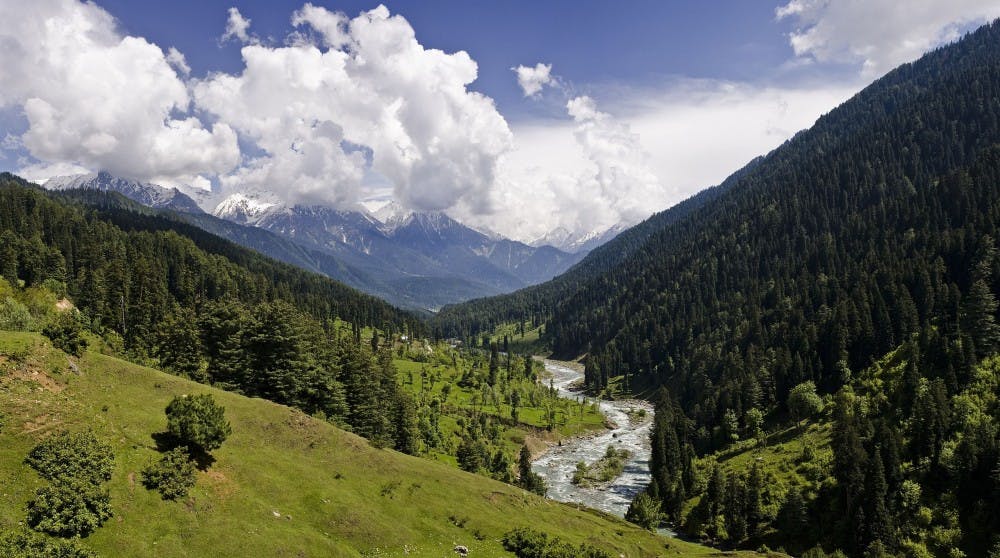Today I am disillusioned. Today I am heartbroken. Today I look back at history and I know why we allowed atrocious crimes of genocide and ethnic cleansing to take place.
Here’s why: Let’s talk about Kashmir. Unfortunately, Kashmir cannot really be mentioned in its own right when people only know about it through the long standing conflict between Pakistan and India over its occupation. The battle for Kashmir has made Kashmir a pawn in a political game — and Kashmiris are embroiled in a battle of Indian or Pakistani self-identification without any avenue for self-determination. I will not go into the history of Kashmir, because it’s beyond the scope of this article and beyond the scope of my own understanding on the issue. I will also not go into the history of Indian or Pakistani hostility towards each other on the front line battle for Kashmir.
As far as I am concerned, right now that no longer matters if we are to move forward in viewing Kashmiris as people rather than as spewed evidence of Pakistan versus Indian cruelty in the area. If I sat to enumerate and recount past mistakes, Kashmir would be lost in the equation for “who was more cruel.”
So what I really want to talk about today is Article 370. For those who do not know, here is some background on Article 370 — in a nutshell, Article 370 in the Indian Constitution gave special status to the people of Jammu and Kashmir in India. This special status included giving it internalized control of the region, its own flag and a separate constitution. This was included in the constitution in 1954 when the Raja of Kashmir joined India after threat of siege from Pakistani forces. This article was instrumental in shaping Kashmiri identity and Kashmiri land — it allowed them in the words of a Kashmiri Indian, “a nation to call their own.” And that makes sense — whether pro India or pro Pakistan, Kashmiris above and beyond constitute an ethnicity and a culture that they want to preserve.
Recently, on August 5, this Article 370 was abolished from the Indian Constitution, thus removing the special status of Jammu and Kashmir and bringing it under central control of the government of India. I don’t know how to convey what this means symbolically for Kashmiris — losing their homeland, losing themselves and fearing modern day colonization as an influx of Indians are now allowed to buy and keep property in Kashmir (previously they weren’t). Indian Prime Minister Narendra Modi said he made this decision to better the law and order situation in Kashmir and to bring it under pluralistic Indian identity.
To say that this is glossing over the reality of what is happening in Kashmir would be an understatement. For the past 55 days, Kashmir has been on complete lockdown. No phone calls in, no phone calls out. Cut off from the internet and from social media. A curfew has been imposed and people are locked up like animals in their homes. Thirteen thousand boys have gone missing without explanation.
Kashmir seems like a ghost city, uninhabited, devoid of life. Kashmir is now one of the most militarized regions in the world, with 900,000 troops deployed in a place of eight million Kashmiris. The use of pellet guns on civilians for protesting has resulted in blinded boys — young boys, not nearly old enough to finish high school, but old enough to face genocide. It’s been 55 days and Kashmiris have not attended their schools or universities. Education has stopped, socializing has stopped, protesting has stopped. Rights have stopped.
My friend’s family lives in the curfewed area of Jammu and Kashmir. Their dad told them that he had not been able to contact his mother for 55 days. They mourn but they don’t know — because they don’t know who to mourn — whose body to pray for.
I did not believe this could happen in the 21st century. I did not believe that after the creation of a body like the United Nations this could happen. They literally exist to intervene in situations like this and are doing nothing. I cannot believe that in front of our eyes, millions of people are under siege. I cannot believe that we have not learned from past crimes — from the Nuremberg trials, from the Tokyo trials, from the many times humans were violated in front of the eyes of the world and the world stayed silent.
I want to question this silence. I want to know why Kashmir is not brought up in every conversation. I want to know why ESPECIALLY brown people are not talking about it, thinking about it, rallying for it. Where are our protests? Where are our strikes? Are we so far removed in the West that Kashmiris are not worthy of the same attention we gave a cathedral in Paris? Where are the prayers? Where are the moments of silences?
Where is our response? Why are we silent?
At times like this I look back at history and ask myself, how could we let this happen? I answer: This is how. This is how.





